- Home
- Gerald Hammond
Silver City Scandal
Silver City Scandal Read online
SILVER CITY SCANDAL
Gerald Hammond
© Gerald Hammond 1986
Gerald Hammond has asserted his rights under the Copyright, Design and Patents Act, 1988, to be identified as the author of this work.
First published in 1986 by MACMILLAN LONDON LIMITED.
This edition published in 2018 by Endeavour Media Ltd.
Table of Contents
Chapter One
Chapter Two
Chapter Three
Chapter Four
Chapter Five
Chapter Six
Chapter Seven
Chapter Eight
Chapter Nine
Chapter Ten
Chapter Eleven
Chapter Twelve
Chapter Thirteen
Chapter Fourteen
Chapter One
Aberdeen Sheriff Court is not usually a welcoming haven, but Keith Calder was thankful to find its shelter. The north wind had made a right-angled turn at the Citadel and was whooping along Union Street with the gusto of a small boy pursuing a puppy.
An elderly official directed him to the witness room, which he found to be empty except for a mousy girl with a file of papers and a harassed expression.
‘At last!’ she said.
Keith did not suppose that she had been impatient for his manly charms. She would, undoubtedly, be from the office of the Procurator Fiscal. ‘In point of fact,’ he said, ‘I’m early.’
‘But the High Court’s getting ahead of itself. Some of the cross-examinations took half the expected time. I don’t know why you couldn’t have been available from the start of the trial like other witnesses,’ she finished peevishly.
‘My hourly rate seemed to put you off,’ Keith said.
‘That’s another thing. There’s a set daily rate for witnesses.’
‘Which would buy my time for about ten minutes a day,’ Keith said. He was both bored and amused. He had given evidence often in the past and had had the same conversation almost as often. ‘Take it to the taxing master if you like. He’ll only agree with me.’
The girl flushed. Keith guessed that she was a recent graduate from law school, feeling her way. ‘But we only want you to confirm the sale of a gun,’ she said, pouting. ‘Nothing difficult.’
‘That doesn’t make it less important,’ Keith pointed out. ‘This is a case of murder, unless the local fuzz have been pulling my leg. And it doesn’t make my time any less valuable.’
The girl was prepared for further argument, to which, Keith decided, he would reply with sarcasm. She was mildly attractive when she remembered not to glower, but no sexual vibrations were passing between them. They were saved from a downright explosion by a voice in the corridor.
‘Christ!’ she said. ‘They want you. You’re sure you know what to do?’
Keith lost patience. ‘Since before you were born,’ he said.
Pink and fuming, she led him out. The macer took over and brought him into Aberdeen’s largest courtroom, in temporary use by the High Court. Keith took his place on the witness stand, very conscious of the low, wooden canopy over his head, designed to throw the sound of his voice to the jury who were packed into their cattle stall opposite him. At his side was the shorthand writer, and beyond her the judge whom Keith knew to be Lord Aberford. Out of the corner of his eye Keith could see the dock with the public benches and gallery beyond, but he avoided looking in that direction. He had been called by the prosecution and any sympathetic eye contact with the accused might dent his impartiality.
Lord Aberford rose to administer the oath and then lowered his stout, elderly body back into its ornate chair with a satisfied grunt. The witness, as always, was left standing, perhaps as a reminder to be short-winded.
The Advocate-Depute rose from his seat at the crowded table below the judge’s bench and glanced at his brief.
‘You are Keith Calder?’ he began.
Keith agreed.
‘Please tell the court your occupation.’
Keith thought that a modicum of advertising never came amiss. ‘I am a gunsmith,’ he said, ‘and a dealer in good quality new and used shotguns and rifles and in antique arms. I also act as a shooting instructor. I have a shop in the town of Newton Lauder, Borders Region.’
He would have gone on to mention dog training and to extol the quality of his fishing tackle, but the Advocate-Depute broke in.
‘I hand you this book. Please tell the court what it is.’
Keith took the large, cardboard-covered notebook into his hands. ‘This is one of a series of similar books in which I keep the record, required by the law, of guns bought and sold. It covers a period of some eight months, roughly five years ago.’
‘Please open the book at the marker and look at the entry at the top of the right-hand page. From that entry, what can you tell the court about the transaction?’
Keith looked down at the book although he already knew the entry by heart. The Newton Lauder police had visited him on several occasions and had taken more statements from him about that entry than he cared to remember.
‘On the eighteenth of November, almost exactly five years ago,’ he said, ‘I sold a new, Spanish, sidelock, twelve-bore shotgun, number two-five-three-four, made by Armas Alicante. For business reasons, certain details of stock dimensions and choke borings are also noted. The purchaser produced a shotgun certificate, number five-three-three-one, which gave his name as Hugh Michael Donald and his address as Ingoldsby Drive, Aberdeen. The price is also recorded.’
The Advocate-Depute had run out of questions. But he was uncomfortably aware that a costly error had been made in fetching an expensive witness half the length of Scotland while the defence might not have objected to the introduction of Keith’s records by a police witness. He knew it to be a cardinal rule never to ask a question in direct examination to which the answer is not already known. But the Advocate-Depute made a mistake. He decided to ask a question to which he thought that the answer was obvious.
He caught the macer’s eye. ‘Would this be the shotgun referred to?’ he asked.
Keith, also, was aware that he had hardly justified his fee and expenses. He was, moreover, irritated that the girl from the Procurator Fiscal’s office should have thought him unworthy of his usual fee. He glanced down at the gun which the macer had handed him. ‘I can’t possibly tell you that,’ he heard himself saying.
There was a gentle stirring in the courtroom. The Advocate-Depute swallowed, audibly. But it was too late to retreat. ‘Does the number correspond with that in your records?’ he asked carefully.
Keith removed the fore-end, opened the gun and read the number on the action. ‘It does.’
‘And am I not right in thinking that no two similar guns ever bear the same number?’
‘You are not,’ Keith said. He was beginning to enjoy himself. ‘I recently saw two Luger pistols with identical numbers. Luger ran two series of numbers, one for military productions and another for pistols made for the civilian market.’
‘But. . . .’ The Advocate-Depute paused for a second’s thought. ‘There would be no military production of shotguns?’
‘I would suppose not,’ Keith said. ‘Certainly not of sporting sidelocks.’
‘Then can you suggest why Messrs Armas Alicante should duplicate numbers?’
‘I can,’ Keith said. ‘The firm was long-established, but you will note that the number of this gun is low, which suggests that the firm started a fresh series of numbers with each model. This particular model was aimed at the British and similar markets and it may be that a separate series of numbers was used for export guns as against those for sale at home – differentiated, perhaps, by the size or style of numbers. Only refere
nce to the firm’s records would determine whether that’s so. And I’m afraid that the firm went out of business shortly after this gun was made. Their records may be unavailable.’
If the Advocate-Depute had not known that he had already done more than enough damage, the expression on the Crown Office solicitor’s face would have told him. He decided to wind up his examination without giving the defence any more straws to grasp. ‘Does this gun appear to be of the make, model, style and type which you sold and which is recorded in your book of records?’
‘It does,’ Keith said.
‘And the arrival in this country of a similar gun bearing the same number would be highly improbable?’
‘It would,’ Keith agreed.
‘Thank you. I have no more questions for this witness.’
The Advocate-Depute sat down and tried to ignore what the Crown Office solicitor was whispering at him.
Counsel for the Defence rose, an elderly man, his age accentuated by his grey wig. His eyes were friendly but abstracted. He had been given one unexpected card to play in an otherwise hopeless hand.
‘Mr Calder,’ he began. ‘You say that it is possible – unlikely but possible – for two guns such as the one in your hands, and similarly numbered, to have reached this country. Is that right?’
‘Yes.’
In for a penny, Counsel thought, in for a pound. ‘Please look at the defendant,’ he said. ‘Is that the man to whom you sold this or a similar gun, five years ago?’
Keith looked at the defendant for the first time. Flanked by two strapping policemen he looked small, although he was of burly build. He had a round face and his very black hair was repeated on the backs of his hands and in the blue of his chin. Keith liked him on sight and thought that here was a man from whom he would buy a gun unseen. This was Keith’s highest accolade. Counsel for the Defence had looked similarly trustworthy, whereas Keith had already decided that, if he should ever buy anything from the Advocate-Depute, he would count his change. Out of such small things grow greater decisions. Keith would help the defence if he could.
‘After five years,’ he said truthfully, ‘I’ve no recollection at all. I certainly don’t remember seeing him before.’ He gave the advocate a meaning look and willed him to go on.
‘What you are saying is that you can not in all honesty swear that you sold this gun to this man?’
‘That’s true,’ Keith said. He repeated the look.
Counsel hesitated and then decided to plunge. ‘Would it surprise you to know that, while the defendant admits to having bought a gun from you of that make and pattern and to having used it regularly for the intervening years, he will emphatically deny that this is the gun?’
‘Not in the least,’ Keith said.
The public benches, which were three-quarters filled, were unnaturally silent. Not a cough, not even a loud breath could be heard. Something new was coming.
‘Please tell the court why not.’
Keith suppressed a smile. The door was open. ‘This gun wouldn’t fit the defendant,’ he said. ‘A shotgun isn’t sighted like a rifle. Its accuracy depends on its being fitted to the user, so that when it’s correctly held and his cheekbone is on the comb – the top – of the stock, his eye is aligned with the rib. There are exceptions to that, but it is generally true. The gun must also be the right length for the user. For that reason, standard guns as mass-produced tend only to suit men of average build and are often altered to fit users who differ from the norm. I do a lot of that sort of work.
‘The defendant,’ Keith went happily on, watching from the corner of his eye the consternation developing at the prosecution’s half of the table below him, ‘seems to be smaller than average but heavily-built and with a full face. If I were altering this gun to fit him, I would expect to shorten the stock, perhaps giving the butt a slight forward angle so that recoil wouldn’t bruise his rather deep chest. And I think that he would need the cast – that’s to say the horizontal bend in the stock – to be increased to allow for the squareness of his jaw.
‘But this gun has actually been lengthened by the addition of a rubber recoil-pad and the stock has been straightened to remove the slight cast which it would have had as standard.’ Keith stopped and looked Counsel in the eye.
‘Would you care,’ Counsel asked hesitantly, ‘to suggest the build of the owner of this gun?’
‘Tall and thin,’ Keith said. ‘Quite possibly left-handed.’
‘I’m very much obliged to you,’ Counsel said. He looked at Keith without receiving any more signals. ‘No further questions,’ he said.
There was a subdued buzz of comment in the courtroom. As the Advocate-Depute rose to his feet, it died away.
‘Your Lordship will appreciate that some of this witness’s evidence was unexpected. Might I request an adjournment while this aspect of the case is examined, and to take further instructions?’
Lord Aberford was not noted for his indulgence when Counsel found themselves in difficulties. ‘You might make such a request,’ he said, ‘but it would not be granted. Mr Calder is your own witness, and it is neither the fault of the court nor of the defence if you were inadequately briefed. However, we will adjourn for lunch now and resume at two p.m., which allows you a few extra minutes. I take it that you have not finished with the witness?’
‘Indeed I have not,’ the Advocate-Depute said grimly.
‘Very well. Be back here at two o’clock,’ Lord Aberford told Keith. ‘And you are not to discuss your evidence with anybody. Anybody at all,’ he added, in the direction of the Advocate-Depute.
*
Keith crossed Union Street through the first flurry of snowflakes and treated himself to lunch at the Athenaeum. He was back in the courtroom by the appointed hour. On the way, he crossed with Counsel for the Defence who looked at him hungrily but turned away.
Court re-convened. The Advocate-Depute rose to re-examine. He looked like thunder – Keith suspected that he had missed his lunch – but his manner was more sorrowful than angry.
‘Under cross-examination, Mr Calder, you made statements which were not in your precognition. Why were we not given the benefit of your – shall I say? – theories in advance?’
‘I was not shown the accused or the gun,’ Keith said, ‘or I would have pointed out the incompatibility between them.’
‘Ah, yes. This alleged incompatibility.’ The Advocate-Depute tried to sound as if he were enjoying himself. ‘Thank you for reminding me. Are you saying that this man could not have shot with this gun?’
‘No,’ Keith said, ‘I’m not. I’m saying that he would have missed to the left, or would have found himself very much better at targets which crossed from right to left than vice versa; which for all I know was the case. And I’m suggesting that no competent gunsmith would have made these alterations to this gun for this man.’
The Advocate-Depute glanced down at a page of hastily scribbled notes. ‘But am I not correct in thinking that a perfectly competent gunsmith will sometimes, on his own suggestion or that of a shooting coach such as yourself, alter a gun in a way that might appear abnormal, in order to compensate for an habitual error on the part of the owner? In other words, that the alteration in question might have been made in order to cure a habit on the part of the defendant of missing on the right?’
Keith decided that the Advocate-Depute had not sacrificed his lunch in vain, and he wondered which local gunsmith had been dragged away from his own meal. ‘I wouldn’t consider it good practice unless there were a physical infirmity causing the problem,’ he said. ‘It’s much better to make the gun fit the man properly and then teach him to shoot straight with it.’
‘But it does happen?’
‘Regrettably, yes.’
‘And at the hands of perfectly competent gunsmiths?’
‘Occasionally,’ Keith said.
‘So your earlier comment was erroneous?’
‘Certainly not.’
‘I put it to you
. . .’
Lord Aberford leaned forward. ‘You must not cross-examine your own witness,’ he said with relish.
The Advocate-Depute sighed. He looked hard at his notes and then sat down.
Keith looked hard at Defence Counsel, who rose but then hesitated and studied his own notes before speaking.
‘My learned friend has been referring to the – ah – bending of the stock of the gun. Forgive me if my grasp of the technical expressions is less than adequate. But what opinion do you have regarding the lengthening of the stock? Would a competent gunsmith have carried out such work for the defendant?’
‘Not even an incompetent gunsmith,’ Keith said, ‘would suggest lengthening a standard stock to suit a smaller than average man.’
‘Thank you very much indeed.’
Both Counsel indicated that they were finished with the witness and Keith was allowed to stand down. Two separate discussions, whispered yet of evident urgency, were in train at the advocates’ table.
Having put the cat among the pigeons, Keith would have liked to remain and observe the feathers flying. But his evidence had only been expected to last for a few minutes, and as a result he was already overdue to meet his wife. He left a note with the macer for the defence solicitor, donned his sheepskin coat and made his way back, through falling snow, to Gregor’s Hotel. The wind had dropped. The streets were wet with grey slush, but the snow lay clean in Union Terrace Gardens and the noise of the traffic was muffled.
Chapter Two
Keith found his wife enjoying the luxury of afternoon tea in the hotel’s broad lounge and watching the comings and goings of the oilmen and their women. They exchanged affectionate glances, which were all the greeting needed between them. Keith lowered himself stiffly into a seat beside her.
‘Any tea left?’ he asked.
Molly poured tea while embarking on an account of her day. Keith waited patiently. He had long since learned that her attention would be elsewhere until she had recounted, in strict chronological order, all that she had done, whom she had met, who had said what and why, and what she thought about it all. Molly, for her part, had learned not to expect her husband to chatter unless he were in a talkative mood or had a message to impart. They no longer tried to change each other’s habits. Perhaps, Keith thought, that is what love really is.

 Home to Roost
Home to Roost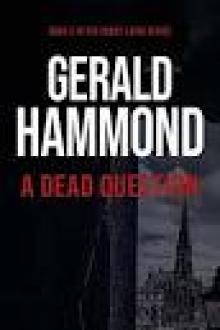 A Dead Question
A Dead Question Twice Bitten
Twice Bitten The Curse of the Cockers
The Curse of the Cockers In Loving Memory
In Loving Memory Illegal Tender (Three Oaks Book 12)
Illegal Tender (Three Oaks Book 12) Cold Relations (Honey Laird Book 1)
Cold Relations (Honey Laird Book 1)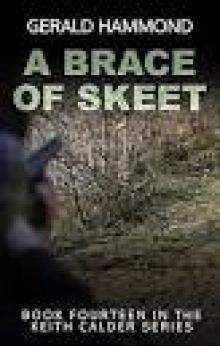 A Brace of Skeet
A Brace of Skeet Silver City Scandal
Silver City Scandal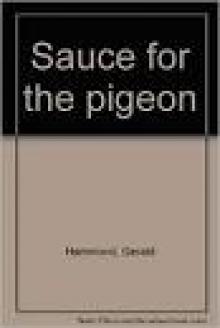 Sauce For the Pigeon
Sauce For the Pigeon Cold Relations
Cold Relations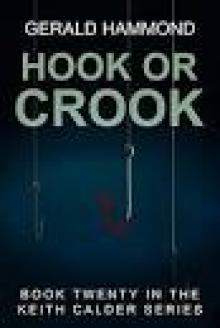 Hook or Crook
Hook or Crook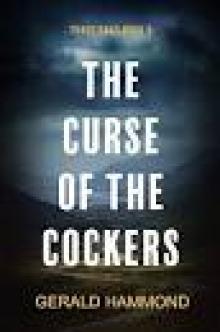 The Curse of the Cockers (Three Oaks Book 5)
The Curse of the Cockers (Three Oaks Book 5) Snatch Crop
Snatch Crop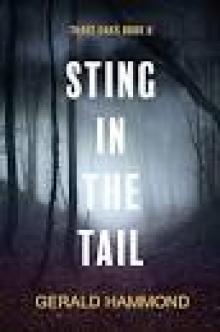 Sting in the Tail (Three Oaks Book 6)
Sting in the Tail (Three Oaks Book 6)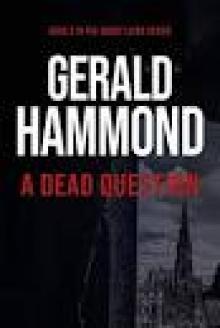 A Dead Question (Honey Laird Book 2)
A Dead Question (Honey Laird Book 2)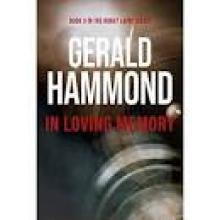 In Loving Memory (Honey Laird Book 3)
In Loving Memory (Honey Laird Book 3) Thin Air
Thin Air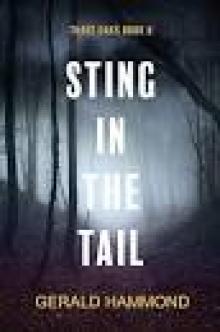 Sting in the Tail
Sting in the Tail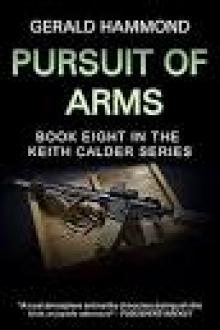 Pursuit of Arms
Pursuit of Arms The Game
The Game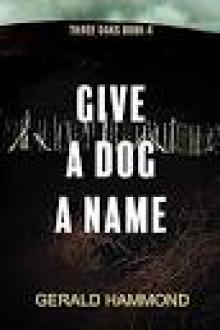 Give a Dog a Name (Three Oaks Book 4)
Give a Dog a Name (Three Oaks Book 4) Fair Game
Fair Game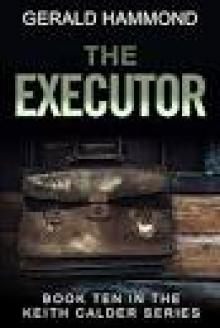 The Executor (Keith Calder Book 10)
The Executor (Keith Calder Book 10) Whose Dog Are You? (Three Oaks Book 2)
Whose Dog Are You? (Three Oaks Book 2) Mad Dogs and Scotsmen (Three Oaks Book 7)
Mad Dogs and Scotsmen (Three Oaks Book 7) Cousin Once Removed
Cousin Once Removed The Worried Widow
The Worried Widow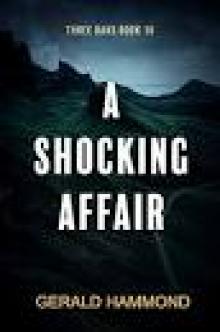 A Shocking Affair
A Shocking Affair Dead Weight (Three Oaks Book 11)
Dead Weight (Three Oaks Book 11) Whose Dog Are You
Whose Dog Are You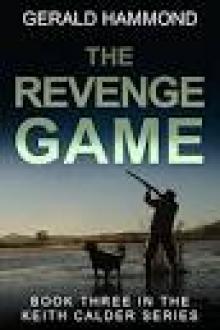 The Revenge Game
The Revenge Game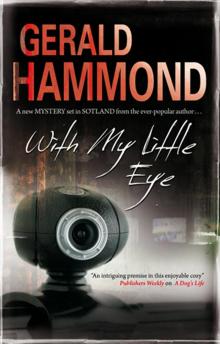 With My Little Eye
With My Little Eye Doghouse (Three Oaks Book 3)
Doghouse (Three Oaks Book 3)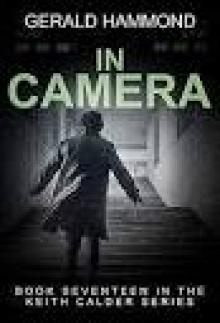 In Camera
In Camera Bloodlines (Three Oaks Book 8)
Bloodlines (Three Oaks Book 8)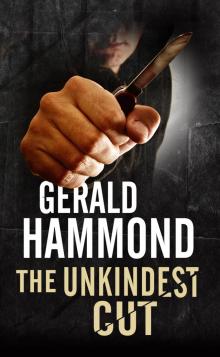 The Unkindest Cut
The Unkindest Cut